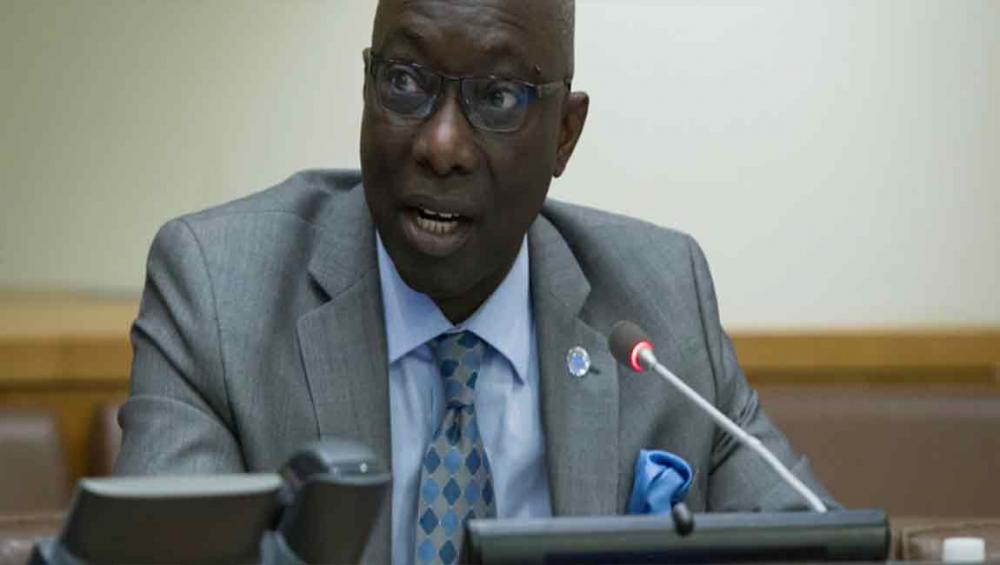Just Earth News 13 Feb 2018, 04:52 am Print

Manuel Elias
New York, Feb 13 (JEN): Concluding a twelve-day visit to Croatia, Montenegro, Serbia and Bosnia and Herzegovina, the United Nations Special Adviser on the Prevention of Genocide called for concerted and sustained efforts to prioritize reconciliation and prevention.
The renewed focus of the Western Balkan States to achieve European Union membership, provides a new opportunity for prioritizing the reconciliation agenda, Special Adviser Adama Dieng said on Monday.
Dieng met with high-level government officials; religious leaders; civil society organizations; and members of the diplomatic community – along with representatives of the UN Country Teams in the region and the UN Office in Belgrade – exploring both reconciliation challenges along with opportunities to overcome them.
Dieng was concerned over a number of divisive factors that, without serious and concerted efforts, could make matters worse, including political polarization across identity lines and politicization of past events, such as glorifying war criminals and contesting court decisions.
Special Adviser Dieng called on political leaders to take active steps to overcome divisions and maximize common ground, encouraging them to focus on the future and prioritize reconciliation as a fundamental regional policy objective.
In Bosnia and Herzegovina, he placed a special focus on the October general elections, noting the increase in political tensions when he met government officials at State and entity levels in Sarajevo and in Banja Luka. He also met members of the Speakers Collegium of both parliamentary chambers. Dieng paid tribute to the victims of past atrocity crimes with visits to memorial sites in Srebrenica and in Donja Gradina and visited the Partisan Memorial Cemetery in Mostar.
He appealed for recognition of the suffering of all victims irrespective of their ethnic or religious origin, including through joint participation by political leaders in memorialization events.
He also underlined the important role of religious leaders and actors in promoting reconciliation, as well as the importance of empowering the youth with sustained efforts to promote inclusive education.
Additionally, the Special Adviser encouraged further strengthening joint agendas in fields where cooperation already exists, including prosecuting war crimes and regionalizing the joint UN and Bosnia and Herzegovina Presidency Dialogue for the Future initiative.
He also pointed to the 2030 Sustainable Development Agenda, particularly Sustainable Development Goal 16, as a key instrument for prevention as it addresses drivers and root causes of instability and conflict.
- Ali Khamenei (1939–2026): Iran’s Supreme Leader who ruled with an iron grip
- Trump signs 10% global tariff, says it takes effect ‘almost immediately’
- BJP wins a seat in Bangladesh — But not the one you think!
- Meet Shabana Mahmood: Could she take over as UK’s first Pakistani-origin Muslim PM?
- Dalai Lama's Office breaks silence on Epstein claims





-1763561110.jpg)
